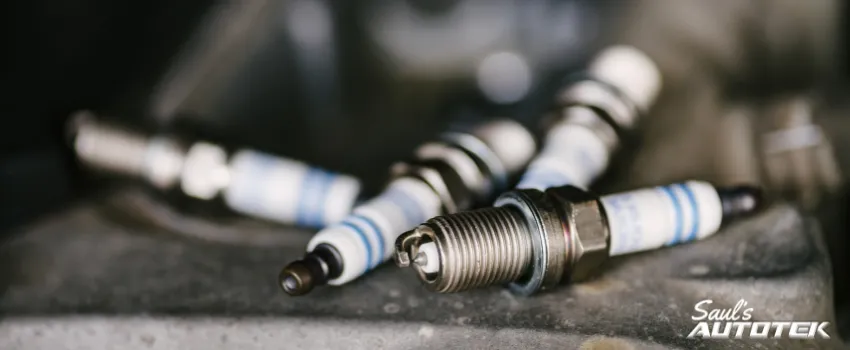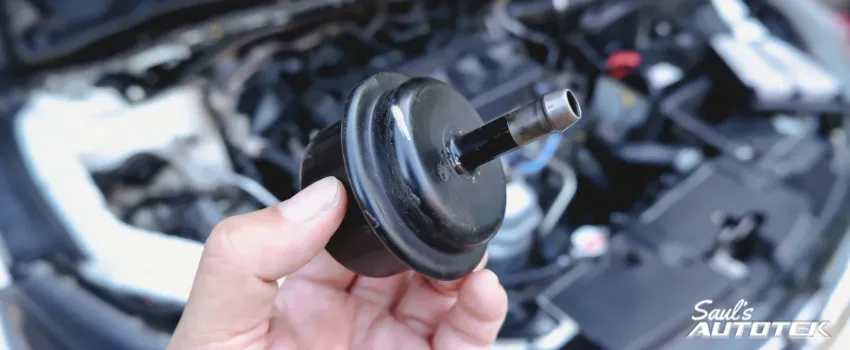I’m Saul Reisman here at Saul’s AUTOTEK. Today we’re going to talk a little bit about winter mountain driving.
Now we live here in the Denver Metro area where the is approximately a mile above sea level, and for every 1,00 feet you’re going up, you’re losing 3% oxygen. You’re also losing three degrees Fahrenheit, which means on average it’s about 16 degrees cooler in Denver than it is at sea level. This also means we get much harsher, more unpredictable weather, and for those of us that live a little further west up in the mountains, it only gets worse. The elevation in Colorado goes as high as 14,000 feet, and the mean elevation is over 7,000 feet, making it the highest elevation state in the union on average.
As a result, we often get inclement weather in any month of the year and it can be extremely unpredictable and downright dangerous. Not only do we have windy, curvy, steep mountain roads that are already unpredictable and difficult to traverse, but we additionally have the ability to be able to work with vehicles in order to produce a better quality product to get them the best quality result.
Due to the fact that we have mountainous terrain going up to high elevations, which means we have windy, curvy, steep mountain roads, we additionally need greater traction for the vehicle. Instead of a flat piece of pavement, we have grades in our state of up to 15%. Now just like you learned in the geometry of what that hypotenuse is, what that tangent over the adjacent angle is and how that affects the friction of the vehicle and how steep those curves are, that changes how much traction the vehicle can get. As a result, here in the state of Colorado, the Colorado Department of Transportation has initiated several traction-based driving laws.
Now you may have heard of several commercial driving laws about carrying tire chains. For instance, for a 130-mile section of the mountains in Colorado, all truck drivers are required by law to carry chains for nine months out of the year. However, for passenger vehicles, we have a much different story. Commercial driver’s license vehicles by definition mean they’ve gone through formal training in order to be a certified driver driving heavy loads in inclement weather, outrageous conditions, you name it. They’re trained, they went to school for it and they’re paid well for it. And they’re also extremely well regulated for it and have to be licensed, insured and are held to a higher standard than we are as regular drivers.
However, the most common drivers on the road in the mountains of Colorado are not CDL drivers. They are you. Whether you live here, you’re traveling here, you’re a tourist here, the most common driver on the road in the mountains has virtually no mountain driving or winter driving experience. One thing that Colorado has offered, CDOT has changed laws to make it so that you’re required to have a certain quality of tires and so that there are certain types of tires that are allowed at certain times of the year and some that aren’t.
In the case of today, we’re going to talk about a studded snow tire. Now, what makes this a snow tire is typically different compounds of tread that better respond to cold weather. When it’s under 40 degrees, a regular rubber tire does not respond as aggressively. The tread compound is much harder. The way that there are sipes in the tread individually cut to allow for greater distribution of this tread so that it can grab the pavement much better and spread its toes equivalently. But the most important thing here is these little studs.
Now every state has different laws and in Colorado, we are legally allowed to run a studded or stud able and studded snow tire. The benefits of this are substantial. On ice and snow, these can cut through the snow and ice to bite down onto that hard pavement surface. That can be the difference between you stopping and starting and you hitting that curve or hitting that next car. It’s scary.
However, there are very specific requirements about what types of vehicles could use them when those studs can be used and what type of conditions, they’re allowed in. Many states in the United States do not allow studs in any way, shape or form. For those of us that live in Colorado, we’re used to running a studded tire or running a dedicated winter tire. As a result, there’s twice a year that we actually end up changing our tires. Typically in the spring and in the fall, owners will bring their vehicle in to swap out to a bare rubber tire or a studded snow tire.
Unfortunately, a lot of owners don’t have it in the budget to run both and we can definitely make great recommendations for an all-season tire at that point. However, if you want to have the safest option on the road, you need studded snow. The reality is for the time that it makes the difference might be the most important time of your life. We always think about the most important thing riding on your tires. That’s what Goodyear and Michelin have told us, right? That’s the greatest insurance policy. Six inches might be the difference between you hitting that car and you come to stop safely. If that difference is worth you owning two sets of tires instead of one, that might be the difference to somebody’s life, and there’s no question about the cost when it comes to those values.
So here’s at Saul’s AUTOTEK, not only do we offer all different types of tires for all different vehicles, whether it’s a Pirelli P Zero for your Bentley Continental or your Aventador or a BF Goodrich All-Terrain for your lifted Jeep, or maybe you just need a Blizzak so that you can get through with your studded snow, we are here to help.
Come see us 365 days a year for all of your tire needs. And in the meantime, when you swap out those seasonal tires, we’ll store your summer or winter tires, so you don’t have to worry about a thing. Come and see us so we can keep you on the road.
Schedule Your FREE diagnostic Subaru Outback Auto Repair Upkeep and Repair Appointment
Check out Our Reviews On Yelp! And Leave A Great One For Us!
Join Our Conversation on Facebook
Explore Our Exceptional Denver Auto Repair Services
- Brake Repair Service
- Suspension Repair
- Steering Repair
- Engine Repair
- Automotive Air Conditioning and Heating Repair





